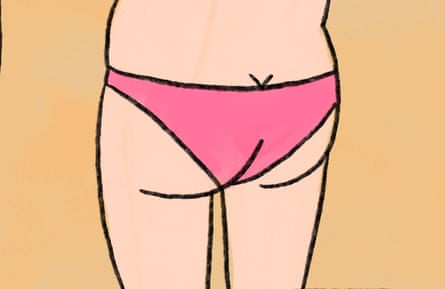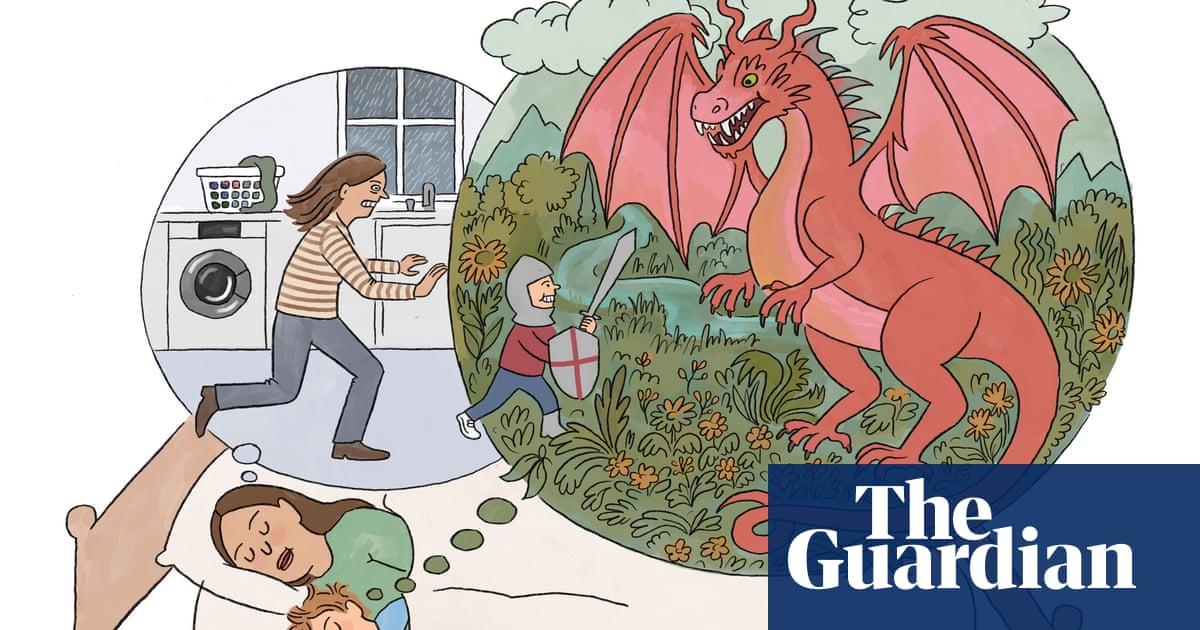Teenagers need the most sleep: FALSE
âThe recommendations are that teenagers aged 13 to 17 should get eight to 10 hours sleep a night, and 18- and 19-year-olds between seven and nine hours,â says Browning. âIf teenagers sleep in at weekends or struggle to wake up for school, itâs not because theyâre lazy or require more sleep, but that they go to bed later. During puberty, teenagers produce melatonin at a later time than younger children, so they have a biological inclination to go to bed and wake up later. They can also be more sensitive to light in the evening, delaying melatonin production.â
Children dream more than adults: UNCLEAR
âBabies and children spend more time than adults in REM sleep â the stage of sleep when most dreams happen â so it is likely that children dream more, but this has not yet been proved,â says Browning. âAdults may be better at dream recall than young children but it doesnât necessarily mean they dream more. A childâs eye movement frequency during REM is not as high, suggesting their dreams may not be as intense.â
Never wake a sleepwalker: TRUE
âAlthough not dangerous, waking a sleepwalker would scare and confuse them, causing an adrenaline rush,â says Wilson. âInstead, talk and reassure them and put them back in bed. I work with lots of clients with parasomnia, from Premier League footballers who head the ball in their sleep to people getting up to make a sandwich.â
If you sleepwalk in deep sleep you are capable of carrying out complex tasks, such as driving a car, because parts of the brain controlling vision, movement and emotion appear to be awake, while areas involved in memory, decision making and rational thinking remain in deep sleep. In REM sleep, however, we are usually paralysed, although those who donât experience muscle paralysis may act out dreams in a more harmful way, such as punching or kicking in their sleep.
Mitigate the risk of sleepwalking by knowing your triggers, which can include stress and anxiety, caffeine or alcohol before bed, high body temperature or a genetic predisposition.
You always speak the truth when you sleep-Â talk: FALSE
Sleep talking, or somniloquy, is most common during adolescence and may be caused by stress and mental health conditions, or stimulants such as coffee or alcohol before bed. âAround half of sleep talking tends to be unintelligible groans or mumbles but when someone is sleep talking understandable words, the most common word is ânoâ,â says Browning. âJust as dreams are not always true, people do not always speak the truth when they sleep talk.â
Sleep deprivation could kill you: TRUE
âYou can go 19 days without food but only nine without sleep,â says Wilson. âLack of sleep causes a build up of prion proteins in the thalamus [part of the brain that relays sensory and motor signals], which eventually causes so much damage to the brain and nervous system that sufferers die. But most of us need not worry as sleep is an instinct, like eating and drinking, so if youâre sleep deprived your body will automatically give you âmicrosleepsâ, where you mentally zone out and drop into the stage of sleep just before you nod off.â
You sleep better at weekends: FALSE
âAnecdotally, people report sleeping better at weekends and on holiday because they feel more relaxed, but sleeping in isnât always a good thing,â says Wilson. Consistent sleep patterns help regulate metabolism and a recent Kingâs College London study found that âsocial jet lagâ from weekend lie-ins led to poor gut health and inflammation, plus an increased risk of heart disease and diabetes. Wilson adds: âThere could be a psychological benefit to having a less busy mind at weekends, and sleeping in for 90 minutes wonât be an issue for most people. But long term, itâs better to go to sleep and wake up at the same time to stabilise circadian rhythm.â

Never sleep in your underwear: TRUE (ISH)
âFor women, it is not advisable to sleep in tight underwear as it prevents airing of the sensitive vulval skin which can increase the risk of bacterial vaginosis or vulval candidiasis (thrush),â says Saurabh Phadnis, consultant gynaecologist and gynae-oncologist at Londonâs Nuffield Health St Bartholomewâs hospital. âIt can also flare up or exacerbate skin conditions such as eczema, dermatitis and lichen planus and cause itching and discharge.â
However, Wilson suggests itâs worth considering hygiene: âThe average person passes gas 15-20 times a day â including in your sleep â and research shows that a small amount of faecal matter comes out of the body at the same time. Itâs a personal choice, but it may be more hygienic to keep underwear on.â
Men sleep better than women: TRUE
âStudies suggest that women need slightly more sleep than men and that women are one-and-a-half to two times more likely to report insomnia,â says Browning. âThis is likely due to hormonal fluctuations during pregnancy, menstruation and menopause, higher rates of anxiety and depression in women compared with men, and women taking on more caring responsibilities,â says Browning. Wilson adds: âLight sleeping is a common problem for women in their 50s and 60s, which is often learned behaviour linked to years of waking with children.â
after newsletter promotion
You swallow eight spiders a year in your sleep: FALSE
âAround a dozen spider species inhabit houses in Britain, but they are not attracted to the open mouth of a sleeping person,â says Geoff Oxford, honorary secretary of The British Arachnological Society. âThis rumour was dreamed up in the early days of the internet to see how rapidly a fictitious âfactâ would spread. Surface-hunting (non-web-spinning) spiders rely on vibrations through surfaces or in the air to locate prey. A hot, damp, windy â possibly snoring â mouth is not conducive to this, nor is anywhere on a twitching, sleeping body. Likewise, web-spinners need stiff supports to anchor their webs, so they choose corners of rooms or crevices. Tiny money spiders on silk lines might accidentally be swallowed if people jog or cycle with their mouths open.â
Sleeping on your front aids digestion: FALSE
âSleeping position doesnât directly impact digestion because the processes are enzymatic,â says Rhiannon Lambert, nutritionist and author of Re-Nourish: A Simple Way to Eat Well. In fact, âsleeping on your front is discouraged due to the pressure it can exert on the stomach. When lying on your stomach, particularly after a meal, it can cause your stomach contents to press against the lower oesophageal sphincter, the muscular ring that separates the stomach from the oesophagus â increasing the likelihood of stomach acid flowing back into the oesophagus, causing acid reflux or heartburn.â
The bigger issue with front sleeping, according to Wilson, is back, neck and shoulder pain. âOn your front, the neck is engaged and hands are usually above your head which causes discomfort after prolonged periods. Instead, adopt a foetal position on your side, using a body or knee pillow between your legs if necessary, and lay your head on a thicker pillow to keep your legs and hips neutral.â
The hours before midnight count for more than the hours after midnight: FALSE
âIf youâre a lark, you might have more deep or REM sleep before midnight, but if youâre an owl thatâs not the case,â says Wilson, who insists that getting up at 5am does not make you more successful and neither does going to bed at 9pm. âWe sit on a sleep spectrum and your sleep type complements your surroundings and lifestyle. Plus how we sleep is up to 85% genetic. If you can sleep anywhere, then thatâs inherited.â Browning adds: âPeople who go to bed before midnight tend to get more sleep than those who go after midnight simply because they get more sleep, as we all tend to wake at a similar time. Consistency and total length of sleep is more important than what time you go to bed.â
All beds have bed bugs: FALSE
âPeople confuse dust mites with bed bugs,â explains Wilson. Dust mites are microscopic and may trigger allergies and skin irritations if youâre susceptible, but they donât bite, unlike bed bugs which are visible. âBed bugs are caused by international travel and exist more commonly in clothes, luggage, on public transport and hotel beds than in homes. They spread easily, so minimise the risk of an infestation by using an encasement mattress protector and vacuuming your mattress regularly. Foam mattress are better than sprung at minimising space for bugs and mites to live in.â
Nobody sleeps through the night uninterrupted: TRUE
âEvery night we wake up three to six times, but you need to be awake for five minutes to remember being awake,â says Wilson. âHumans are evolutionary predators, so nobody sleeps uninterrupted â our hearing is the last sense to switch off and the first to switch on when we sleep and wake. Moving at night is no bad thing and the number of movements we make fluctuates depending on factors like menstrual cycle and alcohol consumption.â Browning adds: âIt is normal to move during sleep, from small twitches to occasional major body movements. However, sleep quality can be severely disrupted by a condition such as periodic limb movement (repetitive movements of legs, arms or both). If a child has five or more limb movements an hour, 15 for an adult, it could signal a sleep disorder.â
17 gallons of sweat are absorbed into a mattress: every year UNCLEAR
âWe sweat during the night, but it is impossible to quantify the amount as this fluctuates depending on room temperature, body weight and gender â women can experience more night sweats during menopause or menstruation,â says Wilson. âYou get hot sleepers and cold sleepers, so recognise your type and focus less on room temperature â which should be 16-18 degrees because a lower core temperature aids sleep â and more on allowing the body to breathe. The temperature between the duvet and mattress should be about 27 degrees. Hot sleepers should avoid memory foam mattresses because springs are more breathable, and go for light layers in natural fabrics that allow air flow, such as bamboo sheets or an alpaca fleece to wick away moisture. For cold sleepers, invest in merino wool pyjamas, and male and female partners should use separate duvets due to varying body temperature fluctuations.â
High earners sleep better than low earners: TRUE
On average, high earners (£75,000+) sleep for six hours and 25 minutes a night, which is over half an hour more than those earning the national average salary (£33,000), according to a recent Nuffield Health study. âSocioeconomic status is strongly associated with sleeping issues, with high earners and highly educated people tending to have longer sleep durations,â says Browning. âThis is believed to be linked to higher levels of stress and financial insecurity, and longer working hours experienced by individuals from lower socioeconomic backgrounds. And shift workers tend to have significantly less sleep than nine to five hours because of the disturbance to circadian rhythm.â

